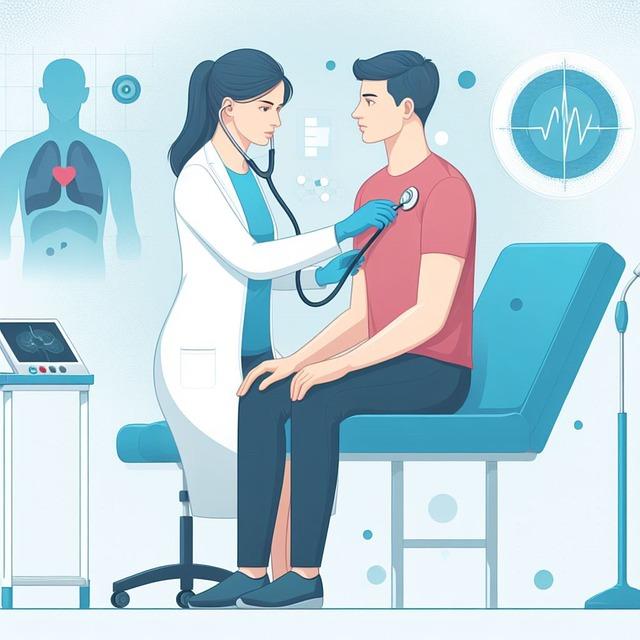Sexuality, an integral part of the human experience, is a subject that often elicits curiosity and discussion. Whether we openly discuss it or keep it under wraps, our sexual activity or lack thereof plays a significant role in shaping our lives. Yet, navigating the spectrum of sexual activity can be complex with a multitude of perspectives and circumstances at play. In this insightful article, we delve into the meaning of being “sexually active” and uncover the diverse insights that emerge from this exploration. Strap in as we shed light on this often misunderstood and fascinating aspect of human existence.
1. Examining the Definition: Unveiling the True Meaning of “Sexually Active”
When discussing human sexuality, the term “sexually active” often arises. However, its true meaning may be more nuanced than initially thought. Let’s delve into this definition, unveiling its multifaceted dimensions:
1. Physical Engagement:
Sexual activity typically denotes engaging in a range of physical interactions that are of a sexual nature. This includes activities such as kissing, touching, oral sex, and intercourse. However, it’s important to highlight that the boundaries and scope of sexual activity may vary widely between individuals and cultural contexts.
- Physical interactions may involve consensual acts between individuals, irrespective of their gender or sexual orientation.
- Exploring the contours of sexual activity within a safe and informed environment can enhance a person’s understanding of their own desires and boundaries.
- Consent, communication, and respect are crucial elements in defining healthy sexual activity.
2. Emotional Connection:
A deeper dimension of being sexually active involves the emotional bond between individuals engaging in such acts. It entails a level of trust, vulnerability, and intimacy that extends beyond the physical sphere. Emotional connection can elevate the experience and contribute to a more fulfilling sexual encounter.
- Establishing emotional rapport with a partner can foster understanding and facilitate open communication about desires, boundaries, and consent.
- Being sexually active should ideally encompass emotional well-being and positive psychological experiences for all parties involved.
- An emotionally satisfying sexual relationship often involves regular and genuine expressions of affection, intimacy, and mutual respect.
So, while the term “sexually active” conveys aspects of physical engagement and emotional connection, its broader definition is unique to each individual and their personal experiences. An open-minded approach ensures a more inclusive understanding of this multifaceted concept.

2. Understanding the Impact: The Physical and Emotional Consequences of Sexual Activity
Engaging in sexual activity can have various physical and emotional consequences that should be understood to make informed decisions. Physically, sexual activity can lead to both positive and negative outcomes. On the positive side, it can strengthen the immune system, reduce stress levels, and promote cardiovascular health. However, it is crucial to recognize that engaging in unprotected sexual activity can increase the risk of sexually transmitted infections (STIs) or unintended pregnancies.
- Positive physical consequences:
- Boosts immune system
- Reduces stress levels
- Promotes cardiovascular health
- Negative physical consequences:
- Risk of contracting STIs
- Risk of unintended pregnancies
Emotionally, the impact of sexual activity can be significant. It can deepen emotional connections and foster a sense of intimacy between partners. However, it is important to recognize that engaging in sexual activity can also lead to emotional challenges. Feelings of guilt, regret, or insecurity might arise, especially if the relationship is not built on a foundation of trust and open communication. Therefore, it is vital to prioritize open dialogue, understanding, and consent to ensure a positive emotional experience.

3. Navigating Boundaries: Establishing Healthy Limitations and Communication with Partners
One crucial aspect of maintaining a healthy and fulfilling relationship is establishing clear boundaries with your partner. Boundaries serve as guidelines that define what is acceptable and respectful behavior within the relationship. Open and honest communication around boundaries is essential to ensure both partners feel heard, understood, and valued. Here are some key points to consider when navigating boundaries in your relationship:
- Recognize and respect individual differences: Each person brings their own unique experiences and values to a relationship. It is important to acknowledge and validate these differences. Understanding that boundaries may differ from person to person can help foster a stronger sense of empathy and compassion.
- Communicate expectations openly: Clearly articulating your needs, desires, and limits is crucial in any relationship. Be honest with yourself and your partner about what you are comfortable with and what makes you feel uncomfortable. Remember, effective communication is a two-way street.
- Regularly revisit and adapt boundaries: Over time, priorities and circumstances may change, requiring adjustments to your boundaries. Regularly check in with your partner to ensure that your boundaries still align with the needs and dynamics of your relationship.
Remember, establishing healthy limitations and open communication within a partnership is a continual process that takes effort and understanding from both sides. By navigating boundaries together, you can create a safe and respectful environment that fosters trust, intimacy, and growth.

4. Safe Practices: Unveiling the Importance of Protection and Regular STI Testing
In today’s fast-paced world, it is crucial to prioritize our well-being, especially when it comes to intimate relationships. Protecting ourselves and our partners from sexually transmitted infections (STIs) should be at the forefront of our minds. By following safe practices and getting regular STI testing, we can safeguard our health and foster a trusting and respectful environment.
Here are some important reasons why protection and regular STI testing are of utmost significance:
- Preventing the spread: Utilizing condoms and other barrier methods during sexual encounters significantly reduces the risk of contracting and spreading STIs, including HIV. It’s a simple step that shows responsible behavior towards ourselves and our partners.
- Early detection: Regular STI testing allows for early detection and treatment of infections. Catching an STI in its early stages not only promotes better health outcomes but also prevents further transmission to others.
- Building trust and communication: Discussing STI testing and safe practices openly with our partners creates an environment of trust and understanding. It demonstrates our commitment to their well-being and fosters open lines of communication in intimate relationships.
Remember, our sexual health matters, and it is within our power to take control. By embracing safe practices and regular STI testing, we not only protect ourselves but also promote the well-being of those we care about. Let’s prioritize our health and make informed choices to ensure a safer and happier future.

5. Psychological Well-being: Exploring the Emotional Aspects of Sexual Activity
When it comes to sexual activity, the emotional aspects are just as important as the physical ones. Research has shown that engaging in a satisfying sexual relationship has numerous benefits for psychological well-being. Let’s explore some of these emotional aspects that make sexual activity a vital component of a healthy, fulfilling life.
1. Stress Relief: Sexual activity has been found to reduce stress levels by releasing endorphins, also known as the “feel-good” hormones. These chemicals help alleviate anxiety and promote relaxation, leading to a more positive mood.
2. Bonding and Intimacy: Sexual activity fosters a sense of bonding and intimacy between partners. It creates a unique opportunity for two individuals to connect on a deeper emotional level, enhancing the overall satisfaction and strength of the relationship.
3. Self-Esteem Boost: Positive sexual experiences can significantly impact self-esteem and body image. Feeling desired and pleasured by a partner can help individuals develop a more positive perception of themselves and their own sexuality.
4. Emotional Expression: Sexual activity provides a platform for emotional expression, allowing individuals to communicate their love, passion, and desire in a non-verbal manner. This can deepen emotional connections, increase trust, and strengthen the overall emotional well-being of both partners.
5. Mood Enhancement: Sexual activity stimulates the release of dopamine, oxytocin, and serotonin, which are neurotransmitters associated with happiness and mood regulation. Regular sexual activity can contribute to overall mental well-being, reducing depression symptoms and promoting a more positive outlook on life.

6. The Role of Consent: Empowering Individuals through Affirmative Communication and Understanding
The role of consent is crucial in empowering individuals to communicate and understand each other through affirmative means. In any relationship, be it personal or professional, consent ensures that all parties involved are able to freely express their desires, boundaries, and expectations. Here are some key points to consider about the role of consent:
- Establishing mutual respect: Consent creates an atmosphere of respect by recognizing and valuing each person’s autonomy and agency. It acknowledges that everyone has the right to make choices and have them respected.
- Promoting open dialogue: Consent encourages open communication and fosters a safe space for individuals to discuss their feelings, needs, and limitations. This open dialogue helps prevent misunderstandings and builds trust among individuals.
- Respecting personal boundaries: Consent empowers individuals to express their boundaries and have them acknowledged and respected. By understanding and honoring these boundaries, individuals can develop healthier and more fulfilling relationships.
- Encouraging affirmative action: Consent promotes affirmative action by actively seeking verbal or non-verbal consent. It involves checking in with one another, reading body language, and being mindful of any potential signs of discomfort.
By placing consent at the center of our interactions, we can create a society that values consent, communication, and understanding. It is crucial to promote a culture where consent is not just acknowledged but actively practiced, empowering individuals to have agency over their own experiences and relationships. This active role of consent helps build strong and respectful connections while maintaining the dignity and autonomy of all involved parties.

7. Empowering Your Choices: Seeking Knowledge, Support, and Resources for a Well-informed Sexual Lifestyle
When it comes to embracing a well-informed sexual lifestyle, seeking knowledge, support, and resources is essential. Whether you are exploring your own desires, navigating relationships, or making important health choices, empowering yourself with information can help you make confident decisions. Here are some ways to access the knowledge and support you need:
- Read informative books and articles: Educate yourself by reading books, articles, and reputable websites that provide accurate and comprehensive information about sexual health, relationships, and consent. There are numerous resources available that can help you better understand your own needs and desires, as well as the rights and boundaries of yourself and others.
- Join supportive communities: Seek out communities, both online and offline, that offer a safe and non-judgmental space for discussing topics related to sexuality. These communities can provide a platform for sharing experiences, seeking advice, and receiving support from like-minded individuals who understand the importance of sexual empowerment.
- Engage in open communication: Foster open and honest conversations with trusted friends, partners, or healthcare professionals to address any questions or concerns you may have. Effective communication can lead to a better understanding of your own desires and boundaries, as well as help you navigate any challenges that may arise in your journey towards a well-informed sexual lifestyle.
- Attend workshops or classes: Consider attending workshops or classes that focus on sexual health, consent, and communication. These educational sessions can provide valuable tools, techniques, and insights that will empower you to make informed choices and enhance your overall sexual well-being.
Remember, the path to a well-informed sexual lifestyle is unique to each individual. By arming yourself with knowledge, seeking support, and utilizing available resources, you can embrace your sexuality with confidence and create a fulfilling and empowering sexual journey.
Frequently Asked Questions
Q: What does it mean to be sexually active?
A: Being sexually active refers to engaging in sexual activities or behaviors with another person. This could encompass a range of activities such as kissing, touching, oral sex, intercourse, or any other form of intimacy.
Q: Is sexual activity only limited to penetrative sex?
A: No, sexual activity is not limited to penetrative sex alone. It includes a wide variety of intimate acts, including but not limited to kissing, caressing, touching, oral sex, and mutual masturbation. It is a broad term that encompasses any consensual sexual interaction between partners.
Q: Is sexual activity a normal part of adult life?
A: Yes, sexual activity is considered a normal part of adult life for many individuals. It plays a significant role in human intimate relationships, promoting emotional connection, pleasure, and overall well-being. However, it is essential to remember that participation in sexual activity is a personal choice and may vary among individuals.
Q: Are there any risks associated with sexual activity?
A: Yes, there are certain risks associated with sexual activity that individuals should be aware of. These include the potential transmission of sexually transmitted infections (STIs) or unintended pregnancies. It is crucial to practice safe sex by using barrier methods (such as condoms) and getting tested regularly for STIs.
Q: Can sexual activity have positive effects on mental and emotional health?
A: Yes, sexual activity can have positive effects on mental and emotional health. Engaging in consensual sexual activities can promote feelings of happiness, satisfaction, and overall well-being. It can also strengthen emotional bonds between partners and boost self-esteem.
Q: Does sexual activity have any physical health benefits?
A: Yes, sexual activity can have various physical health benefits. It can provide a workout for the body, increasing heart rate and burning calories. Regular sexual activity has also been linked to improved immune function, lowered blood pressure, and reduced risk of heart disease.
Q: How does sexual activity impact relationships?
A: Sexual activity can have a significant impact on relationships. It fosters intimacy, improves emotional connection, and helps partners bond on a deeper level. However, it is essential for partners to communicate openly about their desires, boundaries, and expectations to ensure a healthy and satisfying sexual relationship.
Q: What are some potential factors that might affect sexual activity?
A: Various factors can influence an individual’s level of sexual activity. These include personal preferences, hormonal changes, physical and mental health conditions, relationship dynamics, stress levels, cultural or religious beliefs, and societal influences. It is important to acknowledge and respect these factors when considering sexual activity.
Q: How can someone determine when they are ready for sexual activity?
A: Deciding when someone is ready for sexual activity is a personal process that varies from individual to individual. It is crucial to consider factors such as age, emotional maturity, consent, communication, and understanding the potential risks and consequences. Open and honest discussions with a partner and healthcare professionals can help determine readiness.
Q: Is it normal to have concerns or questions about sexual activity?
A: Yes, it is perfectly normal to have concerns or questions about sexual activity. It is important to educate oneself, seek advice from healthcare professionals, and have open conversations with partners to address any uncertainties. Remember, everyone’s journey and experiences with sexual activity differ, so it’s vital to prioritize personal comfort and well-being. To summarize, this article explored the meaning of being sexually active, providing valuable insights into societal norms, personal experiences, and health considerations. It is crucial to have open discussions about sexuality to promote understanding and well-being for individuals of all backgrounds.


